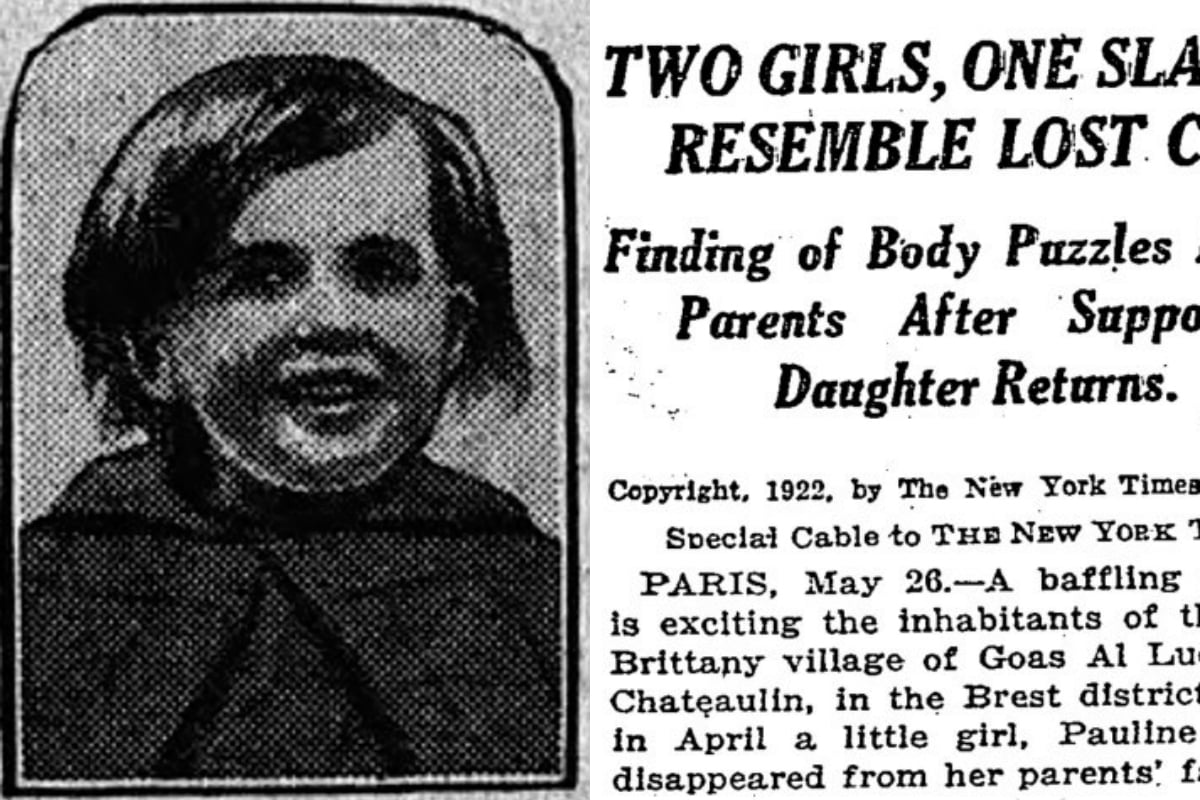
As a two-year-old, Pauline Picard would play with her sisters on her family farm.
The farm house – a quiet, usually safe area in the small, rural settlement of Goas al Ludu, east of Brest in Brittany, France, – was owned by Francois Picard, a farmer, his wife and their nine children.
The children playing alone outside never worried their mother, but when she called her daughters inside for dinner on a Spring evening in April 1922, her other children returned while Pauline was no where to be found.
Mamamia’s top five true crime documentaries. Post continues below video.
The family, police and townspeople came together to search for Pauline – ‘La Petite Pauline Picard’, as the media called her – but she was gone, vanished without a trace.
Weeks later, with hope of finding Pauline alive gone, police in the city of Cherbourg in Normandy found a child matching Pauline’s description lost and confused wandering through alleyways.
When an officer showed a photo of the child to Pauline’s mother, she cried with joy. Her daughter had been found, and on May 8, the family drove the 400 kilometres north to take their daughter home.
But then the doubt set in.
Was this really Pauline?
The child the Picards met in Cherbourg was thinner than Pauline had been, but she had been missing for a number of weeks so police put this down to weight loss.
